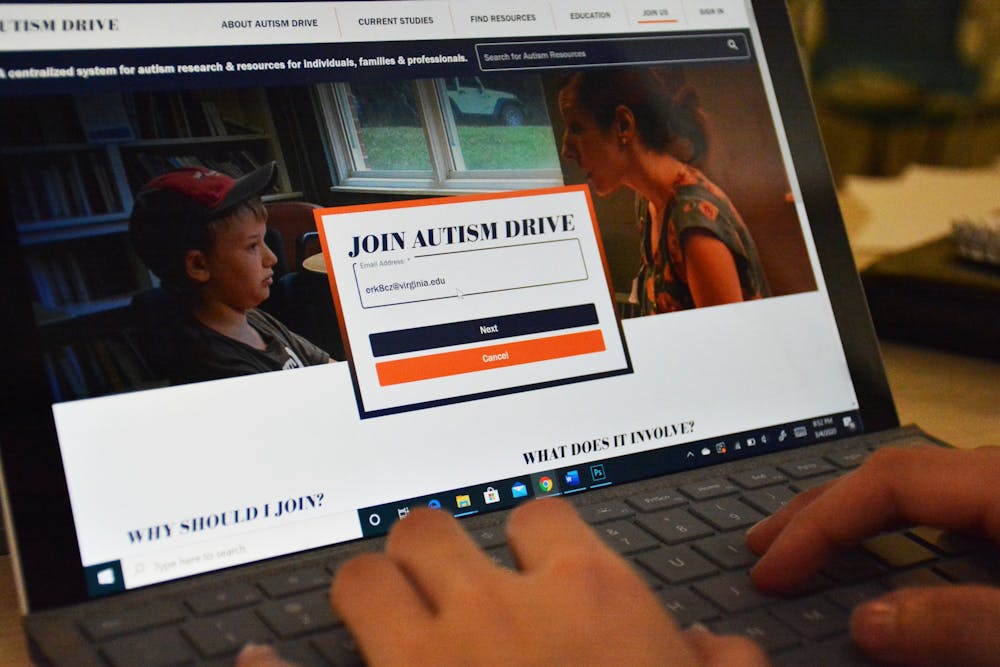The Autism Data System for Research Integration, Visualization and Exchange is a networking and educational resource for people with autism and their families seeking to electronically connect with resources and researchers. Launched in November 2019, DRIVE is a part of the larger Autism Supporting Transformative Autism Research program in the Curry School of Education, which seeks to improve the quality of life of individuals with autism by gathering and performing research across disciplines while also educating those diagnosed and their families.
Rose Nevill, director of the University’s Autism Research Core and research assistant professor of education, emphasizes the novelty of the DRIVE.
“It’s the first platform of its kind to link a research registry with an online resources database to share educational information with the community,” Nevill said. “There are other state-based research registries, and there are other state-based resource directories, but we haven’t come across a system linking all of these elements into one.”
Nevill is excited about the potential of this database for the Charlottesville community.
Because only an estimated 5,000 people in Virginia have been diagnosed with autism, it is critical to connect them with researchers at the University to strengthen research about autism spectrum disorders and increase the resources available.
“DRIVE greatly expands the number of individuals and families we can include in studies, which has great benefit for understanding and treating autism appropriately,” said Robert Pianta, dean of the Curry School, in an email to The Cavalier Daily.
Nevill and Micah Mazurek, director of the STAR program and associate professor of human services, both emphasized the research aspect of the DRIVE, as researchers can more easily access potential research participants by recruiting through a database than via other pathways.
“It is an interactive database that allows researchers and members of the community to connect so that we can share opportunities for research with community members including people with autism and their family members as well as professionals,” Mazurek said.
Nevill mentioned two important studies which the DRIVE has helped launch. One study through the University’s Brain Institute is attempting to determine why autism is diagnosed more regularly in boys than girls. The second is an initiative to develop training modules for healthcare workers who treat individuals with autism to bridge the communication gap between provider and patient. Patients with autism typically have more negative health outcomes than the non-ASD population and even individuals with other neurodevelopmental disabilities, so this research is critical to improving quality of care.
Equally as important, the DRIVE aims to connect individuals with autism and their families with local, online and event resources. Potential local resources include postings about schools with special resources for those with autism or therapy clinics that are close users. Online resources consist of guides, handouts and trainings that DRIVE coordinators have collected and deemed useful for individuals and their families. The events posted on the website focus on supporting, educating and encouraging the autism community.
Currently, the DRIVE is recruiting participants for five active studies. These studies are focused on parent-child brain synchrony that studies how children and parents play together, the development of reading and writing skills in children with autism, the healthcare needs of adults with autism, the brain differences between boys and girls with autism and an eye gaze study, which tests a tool titled AutismEYES to identify risk factors of the disorder in children. With around 300 individuals registered in the DRIVE, every new recruit matters.
“We’re seeing people joining every week,” Nevill said. “At this rate it’s slow, but it’s steady [and] increasing.”
With social media campaigns and a Facebook page launching soon, the program’s directors are hoping to reach more people across Virginia to recruit into the program. So far, feedback about the program has been positive and bodes well for DRIVE’s expansion.
“We’ve had a lot of positive feedback from community members so far about the ease of use and the way in which all the information is presented through a centralized platform,” Nevill said. “We have an email address listed on the site through which people can give us feedback at any point if they would like to do that.”
Participants are able to withdraw from any study if they wish.
“So far no one has left, but they do have the ability to leave at any time if they don’t wish to participate anymore since the DRIVE is technically set up as a research study,” Nevill said.
Looking further to the future, Nevill says they plan to tweak and expand the DRIVE, so it could be presented to other organizations, specifically state-level government programs. The program also hopes to attract interest from individuals in other states, which would allow for further collaboration with and enhancement of the DRIVE’s capabilities.
“We are hopeful and excited to be able to expand the program and help the community,” Nevill said.







